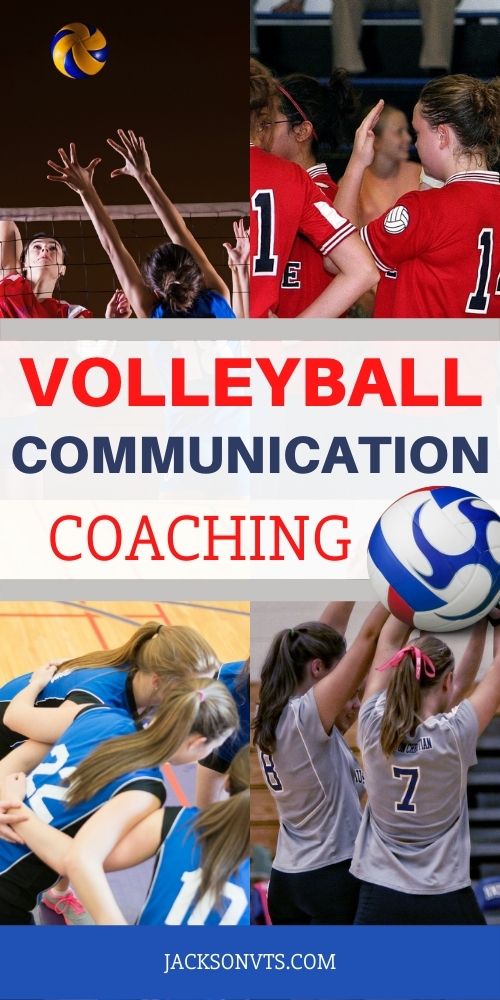Volleyball coaching drills, communication tips, and strategies.
Coaching to Become an Effective Communicator
Verbal cues are only part of the communication process. More than half of communication is done nonverbally.
Actions speak louder than words.
Younger volleyball players especially have trouble understanding the ins and outs of the game.
Verbal Communication
When sending messages verbally….
- Be consistent.
- Be positive and honest.
- Say it loud enough, and say it again.
- State it clearly and simply.
Being Consistent when Communicating to Players
Often people say things in different ways that imply a different message. For example, sarcasm added to the phrase, “Way to go!” sends a completely different message.
You should avoid sending mixed messages.
Don’t say something one day then something else that contradicts the next. This will only confuse players.

Take Action… Actions Speak Louder
John Wooden Quote
Legend Basketball Coach, John Wooden
John Wooden is quoted as saying, “A good coach can give correction without causing resentment.”
For volleyball coaching drills, keep your terminology consistent.
There are many different ways to label terms. For example, “attack the ball”, “kill the ball”, and “terminate the ball”, all mean the same thing. Be consistent with your coaching staff. Agree to use the same terminology and have your team learn the terms.
Be Positive and Honest
Kids particularly need encouragement because they often doubt their ability to perform in sports. Don’t constantly critique every move and play a kid makes.
It’s important to catch your players doing things well and praise effort.
It is important to correct performance errors. If you don’t, players won’t believe in you as a coach.
An effective way to correct a performance error is to first point out the part of the skill that the player performed correctly. Next, explain the error made and then show the correct way to do it.
Say it Loud Enough, and Say it Again
Tone is important. Talk in a way that is loud so the team can hear you.
An enthusiastic voice will motivate players.
Most of the time being loud isn’t enough. This is especially true for new players. Terminology and concepts can be tough to grasp.
Try saying the same thing in a slightly different way. Also, use cues. Experiment with using cues and see what cues work best.
Volleyball Coaching Drills for Passing
For example, for passing, important cues are…
- Ready Position… hands in front of knees.
- Thumbs and wrists together.
- Elbows straight and flat.
- Platform out early under the ball.
- When getting in position… feet to the ball.
- Beat the ball to the spot.
- Shuffle.
- Face the ball, angle the arms.
- Drop the shoulder.
- Pass ball over lead leg.
- See the server, see the spin.
State it Clear and Simple
Tips for saying volleyball things clearly….
- Organize your thought before you speak.
- Use language your players understand.
- Know the subject the best possible.
- Be specific with feedback and give it immediately.
- Explain things thoroughly.
Volleyball Coaching Drills Nonverbal Communication
Just as you wanted to be consistent with verbal coach communication, you want to be consistent with nonverbal messages.
Facial expressions and body language are couple of ways nonverbal messages are sent.
Don’t try to fool players by putting on a happy face. They’ll see through it, and you’ll lose credibility.
Body Language is Critical
A smile can help players see you are happy and confident in your coaching. They’ll see that you are glad to be there coaching them.
You want to be aware of your body language. Players will pick up on your actions and habits. As a coach, you are a role model.
If you show up at practice with your shoulders slumped and hunched over, players will notice. What would they think you’re feeling?
Physical contact is also important. High fives are a great way of showing approval, concern, affection, and joy for your players.
If you enjoyed these tips and would like to keep it close to you at any time, just save this pin to your Pinterest Volleyball Board.

